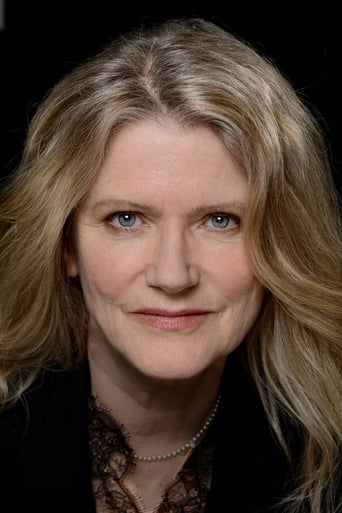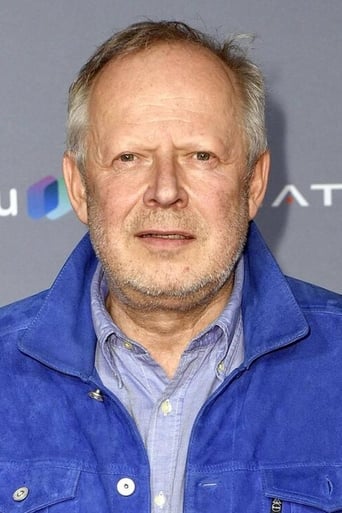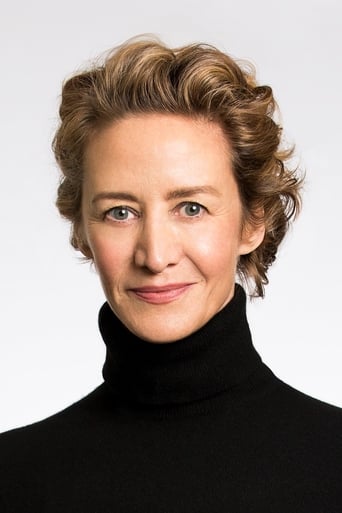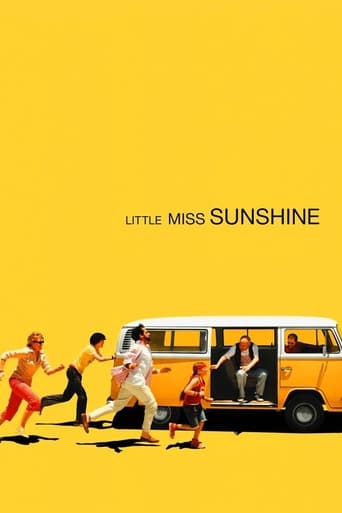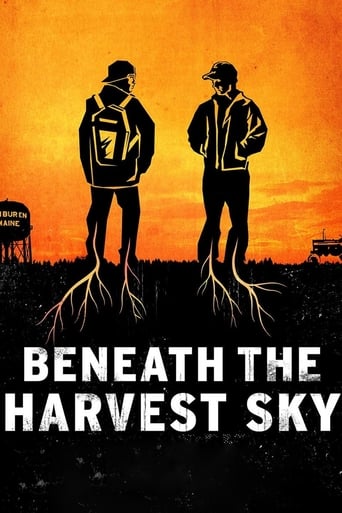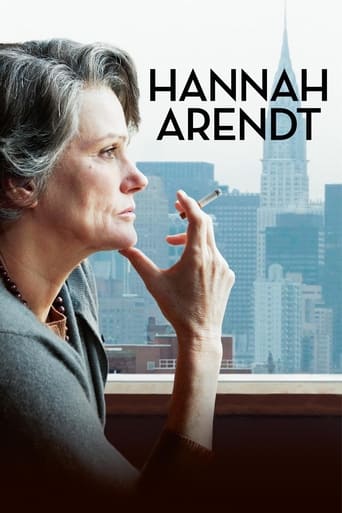

Hannah Arendt (2013)
HANNAH ARENDT is a portrait of the genius that shook the world with her discovery of “the banality of evil.” After she attends the Nazi Adolf Eichmann’s trial in Jerusalem, Arendt dares to write about the Holocaust in terms no one has ever heard before. Her work instantly provokes a furious scandal, and Arendt stands strong as she is attacked by friends and foes alike. But as the German-Jewish émigré also struggles to suppress her own painful associations with the past, the film exposes her beguiling blend of arrogance and vulnerability — revealing a soul defined and derailed by exile.
Watch Trailer
Cast
Similar titles



Reviews
People are voting emotionally.
Crappy film
While it is a pity that the story wasn't told with more visual finesse, this is trivial compared to our real-world problems. It takes a good movie to put that into perspective.
A terrific literary drama and character piece that shows how the process of creating art can be seen differently by those doing it and those looking at it from the outside.
This is a powerful movie that raises important moral issues, not just about the Holocaust, but about how many people "go along" with atrocities without thinking, thereby giving up their humanity. Strangely, just after we watched it on Netflix streaming, I turned to CNN's "The 70's" which was showing Sergeant Calley and his platoon mindlessly killing a whole Vietnamese village, including innocent men, women and children. He too claimed he was just "following orders." In the same episode on the Vietnam War, Henry Kissinger is shown after he has ordered the massive bombing of civilians in Vietnam. He comments casually, "It's sad, but we had to do it." An excellent movie that shows how hard it is to speak out when it offends the popular sensibilities, in this case when Arendt sees Eichmann, not as "the devil" (which is far too easy for the rest of us)but as part of machine that had given up its right to humanity by not thinking about the consequences of his actions.
Every once in a while you'll see a really good performance that's prevented from being great by the film around it. That's the case with Barbara Sukowa as the title character in "Hannah Arendt," a dramatization of a controversial episode in the writer and philosopher's life when she was ostracized for writing a piece in "The New Yorker" about the trials of Eichmann that Jews felt sympathized too much with the Nazi cause.The tone of the film is overly righteous and leaves its audience no room to come to a conclusion on its own. In the world of the film, Hannah is a hero of free speech and free thinking, while those who are offended by her are portrayed as narrow-minded, rat-faced villains. The entire film has a feeling of artifice that it can't overcome -- the actors move around the set like actors in a play, reciting obviously scripted lines in strange, haughty tones, their noses literally in the air. Even Janet McTeer, an actress who I love, seems ill at ease with the material she's given.Only the performance of Sukowa makes this film worth watching, even if the primary feeling watching her is how much better her performance could have been if the movie itself was better. One moment and one moment only, a rousing monologue she delivers during the film's finale, in which she defends her point of view to a room full of students and faculty members, provides a glimpse of the powerful movie "Hannah Arendt" could have been.Grade: B-
I've tried reading Arendt's essay "Eichmann in Jerusalem" several times but I've always gave up for many different reasons (her extremely long paragraphs are awfully distractive, it's very easy to lose focus with her conflicted issues and almost no agreement). And with this film, I may try to read it again. Not because it was a spectacular movie, but mainly because it offered a more detailed perspective on someone who wrote one of the most important and historical literary works, and someone who at the end of the journey lost many friends to defend her ideals and concepts, formed with was presented to her during the judgment of a Nazi executor. The movie "Hannah Arendt" brings up the controversial highlight of her career with the publishing of a report of the trial of Adolf Eichmann in Haifa, in 1961 - the report came two years later. Here, it's explored her observations about one of the most criminal minds of WWII, a bureaucrat who sent millions of Jews to death camps, and an examination of the heated reactions coming from the public who strongly disagreed with Arendt's report on several levels. She concluded that he wasn't the monster he was painted to be, and wasn't even anti-semitic; instead the man was a civil officer who couldn't disobey orders because doing that would be perceived as negative, thus creating what she defined as the banality of evil, meaning that evil takes place when ordinary people are put into situations that encourage their conformity. Another shocking revelation (and bear in mind that she was Jewish herself) was the alarming fact that some Jewish community leaders were very cooperative with the Nazis, or considered helpful to the final solution.Margaret von Trotha's film captures the battle, a glimpse of the essence of such report and how the conception of the banality of evil was conceived. Arendt exposes the real Eichmann as a simple career employee, working for the state and just following orders; disobey them would cause severe punishment. So, it was easier of him to sign papers and send thousands to die in concentration camps than to say 'no' to deplorable and inhumane orders. With those views, she got plenty of negative feedback coming from allies, enemies, and people who felt betrayed by her report. The controversies goes to this date. Those questionings, dualities and doubtful issues are thought-provoking and what makes the movie really interesting, a fine observation of events highlighted with a phenomenal performance by Barbara Sukowa, who also gave a outstanding performance in another biopic directed by the same director, "Rosa Luxemburgo" (1986), and the always dedicate Janet McTeer in a good supporting role. That's the kind of story that should have been made years ago. It's not that it lost some importance but it has became too distant. However, it's far from going without criticism. It's deeply flawed and no, it has nothing to do with its historical accuracies - though it may have it's fair share of dramatic licenses. I felt the film very reserved, lacking of a more cinematic expression, at times some of the acting was very amateurish; the inclusion of flashbacks of love interlude with one of Hannah's teachers weren't defining to the plot; and it was hugely annoying having two languages spoken from time to time - this mixture of studio/producers hurt the project, I think. An American production would be fantastic (if only they were interested in it...). History as a fictionalized version always attracts viewers and the movie as a simplified story didn't disappoint. I liked it, just wish it could have been more. 7/10
German screenwriter, film professor, producer and director Margarethe Von Trotta's thirteenth feature film which she co-wrote with American screenwriter Pamela Katz, is inspired by a biography from 1982 by American author and psychotherapist Elisabeth Young-Bruehl (1946-2011) and real events in the life of a 20th century German-Jewish political theorist. It premiered in the Special Presentations section at the 37th Toronto International Film Festival in 2012, was screened in the German Cinema section at the 63rd Berlin International Film Festival in 2013, was shot on location in America, Israel and Luxembourg and is a Germany-Luxembourg-France co-production which was produced by producers Johannes Rexin and Bettina Brokemper. It tells the story about a 54-year-old emigrant and thinker named Hannah Arendt who lives in an apartment in New York City, USA with her husband and professor in philosophy named Heinrich Blücher. In 1960, SS lieutenant colonel Adolf Eichmann who had been helped by the Roman Catholic Church to escape from Austria to Argentina is captured and kidnapped in Buenos Aires, Argentina by Mossad agents and taken to Jerusalem, Israel where he is to be convicted for crimes against humanity. In the summer of June in 1961 whilst the world is awaiting the upcoming trial which is to be broadcasted on Israeli television, Hannah is given the demanding assignment of covering the event by American journalist William Shawn at The New Yorker. Distinctly and precisely directed by German filmmaker Margarethe Von Trotta, this finely paced and somewhat fictional, though probably as truthful as possible, tale which is narrated from multiple viewpoints though mostly from the main character's point of view, draws a conscientious and revering portrayal of the adversity a University teacher and former Zionist is faced with after writing a ten-page essay about a war criminal called Eichmann in Jerusalem: A Report on the Banality of Evil" which becomes very controversial, and how her interpretation of this widely discussed historical event and its subject matters affected her friendship with a German-Jewish philosopher named Hans Jonas whom she studied with at the University of Marburg, Germany in the 1920s and a German-Jewish Zionist leader named Kurt Blumenfeld whom she worked with in Germany in the early 1930s. While notable for its distinct and atmospheric milieu depictions, reverent and distinguishable cinematography by French cinematographer and director Caroline Champetier, production design by production designer Volker Schaefer, costume design by costume designer Frauke Firl, make-up by make-up artist Astrid Weber and use of colors and light, this character-driven and dialog-driven story about the importance of independent thinking, the historical consequences of totalitarianism and the origins of evil where the narrative is driven by the protagonist's consistent contemplation and an incisively intellectual and profoundly humane woman from Hanover, Germany is wrongfully accused of having defended one of the "many" participants of the extermination of Jews whom she regarded as a mediocre nobody and bureaucrat who was incapable of thinking due to his unconditional obedience to his leader and of blaming the Jewish people for what they were subjected to by the Nazis during the Second World War, depicts a refined and eloquent study of character and contains a timely score by composer André Mergenthaler. This revising, informative, quietly romantic, at times humorous and ingeniously and virtuously anti-totalitarian character piece which is set in Germany, Israel and America in the 1920s, 1950s and early 1960s, which reconstructs poignant events in Hanna Arendt's life and where a prominent author who had a romance with one of her most significant teachers in philosophy named Martin Heidegger, who after being arrested by the Gestapo in the 1930s for her Zionist activities fled from her homeland to Paris, France where she began rescuing young European Jews, who managed to escape from an internment camp in Gurs, France in the early 1940s and who had friendships with a German expatriate named Lotte Köhler and an American writer named Mary McCarthy, confronts a 55-year-old father, husband and SS-Oberststürmbannführer and writes a thesis which addressed critical questions and both challenged and changed peoples' perceptions of the Holocaust, is impelled and reinforced by its cogent narrative structure, subtle character development, rhythmic continuity, efficient use of archival footage, concentrated and commanding style of filmmaking, atmospheric flashback scenes, the masterfully understated acting performance by German actress Barbara Sukowa and the engaging acting performances by English actress Janet McTeer and German actors Axel Milberg and Ulrich Noethen. An acutely cinematographic, densely biographical and empathetic homage which gained, among other awards, the award for Best Actress Barbara Sukowa at the 34th Bavarian Film Awards in 2013.
